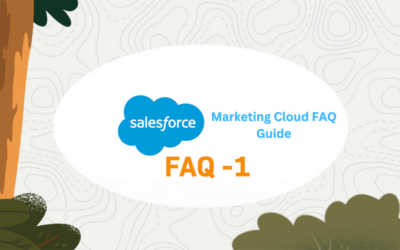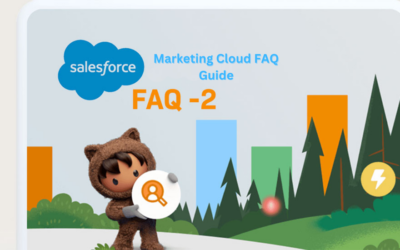In the rapidly evolving realm of customer relationship management, HubSpot CRM stands as a beacon of innovation and efficiency. As businesses strive to nurture their customer relationships, streamline operations, and drive growth, mastering the intricacies of HubSpot CRM has become an indispensable skill. Whether you’re a seasoned CRM expert aiming to stay at the forefront of the industry or an aspiring professional eager to embark on a journey into the world of CRM, this comprehensive guide is your compass to navigate the complexities of HubSpot CRM. With the guidance provided herein, you will not only be well-prepared for interviews but also empowered to excel in the practical application of HubSpot CRM, ensuring that you can steer your organization toward lasting success.
As you embark on this journey, you will embark on a deep dive into the multifaceted world of HubSpot CRM, uncovering its advanced features, integrations, data management best practices, and the power of analytics. Discover how HubSpot CRM can revolutionize your sales and marketing strategies, automate key workflows, and deliver actionable insights. With our compilation of 20 meticulously crafted technical questions and answers, you’ll not only be interview-ready but equipped to elevate your organization’s CRM game, foster customer loyalty, and drive sustainable growth in the ever-competitive business environment. If you need assistance with Salesforce CRM setup and optimization, companies like CRM Force can provide valuable expertise and support.
1- What is HubSpot CRM, and what sets it apart from other CRMs?
Answer: HubSpot CRM is a powerful, cloud-based customer relationship management platform that helps businesses manage their contacts, sales, marketing, and customer service in one place. What sets it apart is its user-friendliness, scalability, and integration with marketing and sales tools.
2- What are HubSpot CRM properties, and how can they be customized?
Answer: HubSpot CRM properties are data fields used to store information about contacts, companies, deals, and more. You can customize these properties to match your specific business needs, ensuring you collect and organize the right data.
3- How can you import contacts into HubSpot CRM?
Answer: To import contacts, go to the “Contacts” tab, click “Import,” and follow the steps to upload a CSV file. HubSpot CRM allows you to map the CSV columns to CRM properties for seamless integration.
4- What are workflows in HubSpot CRM, and how can they be used in marketing and sales?
Answer: Workflows in HubSpot CRM are automated sequences of actions. In marketing, they can be used for lead nurturing and email marketing, while in sales, they help automate repetitive tasks and follow-ups.
5- What is the purpose of HubSpot Sales Hub, and how does it integrate with CRM?
Answer: HubSpot Sales Hub is designed to enhance sales productivity and effectiveness. It integrates seamlessly with HubSpot CRM, providing tools for tracking emails, scheduling meetings, and managing deals.
6- How does HubSpot CRM help with lead generation and lead management?
Answer: HubSpot CRM streamlines lead generation by capturing lead information from various sources. It also enables lead management by allowing you to segment and prioritize leads for more targeted follow-ups.
7- What are email templates in HubSpot CRM, and how can they be personalized for outreach?
Answer: Email templates are pre-designed email formats that can be personalized to include contact-specific information. They save time and maintain consistency when reaching out to leads or customers.
8- How does HubSpot CRM assist with analytics and reporting for sales and marketing efforts?
Answer: HubSpot CRM offers robust analytics and reporting features to track the performance of sales and marketing campaigns. You can measure metrics like open rates, click-through rates, and deal progress.
9- What are some popular integrations available for HubSpot CRM, and why are they important?
Answer: HubSpot CRM integrates with a variety of tools, such as Salesforce, Zapier, and Mailchimp, to streamline various business processes. This ensures that data is shared seamlessly across platforms, enhancing efficiency and productivity.
10- How can HubSpot CRM be customized to align with a company’s unique sales processes and customer journeys?
Answer: HubSpot CRM can be customized by creating custom properties, workflows, and deal stages. This customization allows businesses to align the CRM with their specific sales processes and customer journeys.
11- What is HubSpot’s approach to data security and compliance, and how does it benefit businesses?
Answer: HubSpot places a high priority on data security and compliance. It ensures that businesses can trust their CRM system to protect sensitive customer information and adhere to regulatory requirements.
12- How can HubSpot CRM support inbound marketing strategies?
Answer: HubSpot CRM’s inbound marketing tools, such as content creation, SEO optimization, and social media management, can help attract, engage, and delight customers at every stage of their journey.
13- What are lead nurturing campaigns, and how can they be set up in HubSpot CRM?
Answer: Lead nurturing campaigns in HubSpot CRM involve sending targeted content and automated follow-ups to leads to move them through the sales funnel. They can be set up using workflows and email sequences.
14- How can HubSpot CRM assist with social media management and monitoring?
Answer: HubSpot CRM offers social media management tools for scheduling posts, monitoring mentions, and tracking social media performance. This integration can streamline social media marketing efforts.
15- What is lead scoring in HubSpot CRM, and how can it be utilized for more effective sales strategies?
Answer: Lead scoring in HubSpot CRM assigns values to leads based on their behavior and engagement. Sales teams can prioritize and focus their efforts on leads with higher scores, improving conversion rates.
16- What are common challenges faced when using HubSpot CRM, and how can they be overcome?
Answer: Common challenges include data quality issues and user adoption. Overcoming these challenges requires regular training, data validation, and maintaining data hygiene.
17- How can businesses ensure a smooth migration to HubSpot CRM from another CRM platform?
Answer: A smooth migration involves careful planning, data mapping, and testing. It’s crucial to train the team on the new CRM and ensure data integrity throughout the process.
18-What are some best practices for maintaining data quality and accuracy in HubSpot CRM?
Answer: Best practices include regular data cleanup, data validation, and automation of data entry whenever possible. A clean and accurate database ensures more effective sales and marketing efforts.
19- What is the purpose of lead rotation in HubSpot CRM, and how does it work?
Answer: Lead rotation in HubSpot CRM is a feature that evenly distributes leads among a team of sales representatives. It ensures that each team member gets an equal opportunity to work on new leads. Leads can be rotated based on criteria such as territory, industry, or lead source.
20- What are email tracking and open notification features in HubSpot CRM, and how do they benefit sales teams?
Answer: Email tracking in HubSpot CRM allows sales teams to know when an email is opened. Open notifications provide real-time alerts, enabling sales reps to follow up at the most opportune moment, increasing the likelihood of engagement.
Conclusion
In conclusion, the realm of CRM, mastering HubSpot CRM is the pathway to optimizing customer relationships, supercharging sales and marketing, and achieving sustainable growth. The knowledge gained from this extensive guide empowers you to navigate the intricate landscape of HubSpot CRM with confidence, whether you’re gearing up for interviews or aiming to enhance your day-to-day business operations. It equips you with the skills to harness the full potential of HubSpot CRM, ensuring your organization’s capacity to compete effectively in the dynamic business landscape. While this guide provides a comprehensive foundation, remember that the world of CRM is ever-evolving. Staying updated on the latest developments and trends, particularly within Commerce Hub, will be pivotal in maintaining your competitive edge and securing enduring success.
As we conclude this comprehensive guide, keep in mind that HubSpot CRM, in conjunction with Commerce Hub, represents a dynamic duo that can reshape the way businesses manage their customer relationships and e-commerce strategies. Whether you’re exploring new sales channels, optimizing your e-commerce platform, or seeking innovative ways to connect with customers, the synergy between HubSpot CRM and Commerce Hub provides a powerful toolkit. It’s a toolkit that not only equips businesses to excel in the digital age but also empowers you, as a CRM professional, to remain at the forefront of industry advancements. With the continued evolution of HubSpot’s offerings, your commitment to ongoing learning and adaptation is your key to continued success and leadership in this ever-dynamic field. To learn more about how CRM Force can assist you in recruiting top CRM talent and optimizing your CRM strategies for successful drip campaigns, contact us today. Together, let’s maximize your customer engagement Contact Us today.





